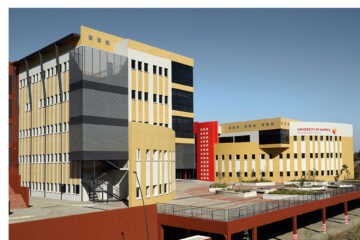Stefanus Nashama
The mayor of the City of Windhoek has defended the blocking of prepaid electricity meters due to outstanding debts while adding that such actions do not violate any laws.
Queen Kamati said this at a media briefing last week.
“The city will continue to use prepaid meter blocking as a complementary measure alongside other debt collection methods,” she explained.
According to Kamati, the approach ensures the financial sustainability of the city’s services as it encourages timely payments from residents.
Kamati said the accumulation of unpaid bills led to a financial shortfall for the municipality.
She said, this affects the council’s ability to provide essential services and hinders other civic initiatives.
“The City of Windhoek, as a local authority, is an important tier of government. To continue operating efficiently and effectively, it must ensure that its clients fulfil their obligations to pay for municipal services. Failure to do so can cause chaos and anarchy, impeding the Windhoek municipal council’s ability to legally exercise its mandate,” stressed the mayor.
According to Kamati, the municipality’s credit control policy empowers the use of appropriate methods to collect debts owed to the council.
Despite these, some clients fail to comply with the agreement, forcing the council to collect outstanding debts through other means.
“As a result, blocking prepaid electricity meters has been employed as a last resort to encourage clients in arrears to settle their outstanding accounts,” she said.
Kamati claimed the directive from the Electricity Control Board (ECB) to cease blocking prepaid electricity meters contradicts the constitutional and statutory mandate of the Windhoek Municipal Council.
She added that the council had not received the directive in writing.
“It is perplexing that a decision with such far-reaching consequences could be made without affording the council an opportunity to be heard, as stipulated in Article 18 of the Namibian Constitution,” she explained.
In June, the ECB issued a directive to local authorities as a means of recovering arrears on non-electricity-related charges.
Kamati also touched on the issue of detected anomalies in some accounts within the municipality’s billing system through its internal controls.
According to her, the affected accounts have been flagged and isolated while the matter is being investigated.
She said no further details at this time will be shared due to the nature of the investigation into the matter.
On the issue of being overcharged or undercharged, Kamati urged customers to approach the Customer Contact Centre with account details for further investigation and assistance.
Kamati added that such incidents occur due to errors in billing, meter readings, or data entry.
The City of Windhoek 2022/23 annual permanence report indicates that the council has noted the top risk of being unable to deliver basic services such as water, electricity, sanitation, and housing, amongst others, due to financial challenges.
However, the council has resolved to investigate new and alternative revenue streams and finalise a financial recovery plan, including an improvement in collecting revenue and debts from customers.




